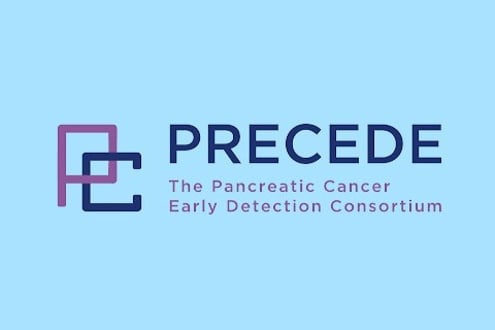STK11 (Peutz-Jeghers Syndrome): Options for Managing Risk
Risk Management for People with Inherited Mutations
Experts at the National Comprehensive Cancer Network (NCCN) created guidelines for people with an inherited mutation to manage their cancer risk.
We recommend that you speak with a genetics expert who can look at your personal and family history of cancer and can help you decide on a plan for managing your risk.
NCCN recommends that all people with an mutation receive education on the signs and symptoms of related cancers. NCCN guidelines for specific cancers are listed below.
People with an mutation may also qualify for clinical trials looking for more effective screening or prevention for cancer.
Participate in Research
|
Beginning Age |
Recommendation |
|
At age of diagnosis with a mutation |
Girls should have an annual exam by a doctor to look for evidence of early-onset puberty. |
|
At age of diagnosis with a mutation |
Boys should have an annual physical exam by a doctor and evidence of feminizing changes. |
|
8-10 years continuing into adulthood |
Boys and girls should have a colonoscopy, upper endoscopy and small bowel exam using CT, or video capsule endoscopy with followup every 2-3 years depending on if abnormalities are found. |
|
Source: NCCN Guidelines: Genetic/Familial High-Risk Assessment: Colorectal, Endometrial, Gastric, v. 1, 2025. |
|
|
Beginning Age |
Recommendation |
Additional Information |
|
25 |
Learn to be aware of changes in your breasts. |
Self exams may be most informative at the end of the menstrual cycle. |
|
30 (or earlier based on youngest age of breast cancer in the family) |
Breast exam by doctor (also known as a clinical breast exam) every 6-12 months. |
The guidelines recommend that people who have risk-reducing mastectomy continue to receive clinical breast exams. |
|
30 (or earlier based on youngest age of breast cancer in the family) |
Yearly breast with and without contrast. |
|
|
30 (or earlier based on youngest age of breast cancer in the family) |
Yearly . |
|
|
No set age |
Discuss the benefits, risks and costs of double mastectomy with your doctor. |
Risk-reducing mastectomy lowers breast cancer risk by 90%, but has not been shown to improve survival. Even after double mastectomy, some breast tissue, and therefore cancer risk remains. The guidelines recommend continuing clinical breast exam after risk-reducing mastectomy. |
|
No set age |
Discuss the benefits, risks and costs of medication to lower the risk for breast cancer with your doctor. |
Tamoxifen and other estrogen-blocking drugs may reduce breast cancer risk for high-risk women, but more research is needed to prove this in people with an mutation. |
|
75 |
Have a discussion with your doctor about whether to continue, stop or change breast screening. |
|
|
Source: NCCN Guidelines: Genetic/Familial High-Risk Assessment: Breast, Ovarian, Pancreatic, , vs. 1 2026. |
||
|
Beginning Age |
Recommendation |
Additional Information |
|
18-20 |
|
Endometrial biopsy is recommended if there is any abnormal bleeding. |
|
After childbearing |
Have a discussion with your doctor about the risks, benefits and costs of removing your uterus (hysterectomy). |
|
|
Source: NCCN Guidelines: Genetic/Familial High-Risk Assessment: Breast, Ovarian, Pancreatic, , v. 1, 2026; NCCN Guidelines: Genetic/Familial High-Risk Assessment: Colorectal, Endometrial, Gastric v. 1, 2025. |
||
|
Beginning Age |
Recommendation |
|
18 |
Colonoscopy every 2–3 years or more frequently depending on number, size and type of found. |
|
18 |
Upper endoscopy every 2–3 years or more frequently depending on number, size and type of found. |
|
18 |
Small intestine exam using CT, or video capsule endoscopy with followup every 2-3 years or more frequently depending on if abnormalities are found. |
|
Source: NCCN Guidelines: Genetic/Familial High-Risk Assessment: Colorectal, Endometrial, Gastric, v. 1, 2025. |
|
Risk management for pancreatic cancer
There are two tests that are used to look for pancreatic cancer in high-risk people.
- MRCP (Contrast-enhanced magnetic resonance cholangiopancreatography) is a special type of imaging that looks closely at the pancreas, liver, gallbladder, bile duct and pancreatic duct to find abnormalities such as cancer.
- EUS (Endoscopic ) involves passing a tiny scope with an attached probe down the esophagus to the stomach. This allows doctors to look closely at the pancreas.
|
Beginning Age |
Recommendation |
|
30-35 years (or 10 years younger than the earliest case of pancreatic cancer in the family) |
|
|
Source: NCCN Guidelines: Genetic/Familial High-Risk Assessment: Breast, Ovarian, Pancreatic, , vs. 1 2026. |
|
|
Beginning Age |
|
|
18 |
Yearly testicular exam and observation for feminizing changes (e.g., breast enlargement). |
|
Beginning Age |
|
|
No set age |
Learn about the risks and signs of lung cancer and the benefits of quitting smoking. |
Other cancers
There has not been enough research to show a benefit from screening and prevention for other cancers in people who have an mutation. For this reason, experts recommend managing other cancer risks based on family history. Cancer screening and prevention research studies may be available for people with mutations.
